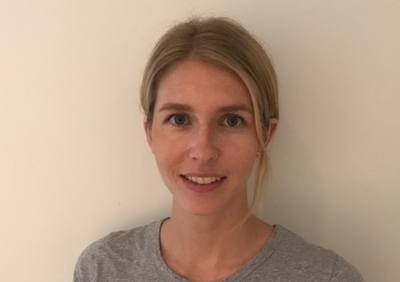Investigating stem cell transplant treatments for MS
UNSW-St Vincent’s Hospital researcher Jennifer Massey is the recipient of an MS Research Australia scholarship to examine the effects of stem cell transplant treatment on patients with MS.
UNSW-St Vincent’s Hospital researcher Jennifer Massey is the recipient of an MS Research Australia scholarship to examine the effects of stem cell transplant treatment on patients with MS.

Dr Jennifer Massey has been awarded a PhD scholarship to investigate the developing field of autologous haematopoietic stem cell transplant (AHSCT) in multiple sclerosis (MS).
The UNSW-St Vincent’s Hospital researcher is the recipient of $100,000 from MS Research Australia and will examine the effects of the treatment on patients with MS.
AHSCT, sometimes called stem cell transplant, is an immunosuppressive chemotherapy treatment combined with reinfusion of patient’s own blood stem cells to help re-build the immune system.
It has been used as treatment for blood cancers for several decades, but is still considered experimental for the treatment of MS because it has not been tested in sufficiently large randomised controlled trials.
Dr Massey says five large trials in the past two years have been encouraging.
The “event-free survival” – or the percentage of patients that did not have a relapse or worsening of their condition – was in the range of 70-85%, better than the majority of pharmaceutical options for MS. These patients, Dr Massey says, had aggressive MS, and had typically failed at least one disease modifying drug before transplant.
In Australia, AHSCT for MS is only performed as part of a Phase 2 clinical trials. So far, 35 patients have been transplanted at St Vincent’s Hospital.as part of the trial.
AHSCT aims to re-set the immune system removing self-reactive immune cells and replacing them with a regenerated immune system. But it’s not known how it produces these effects on the immune system at the cellular level.
Dr Massey’s clinical research will focus on better defining which patients benefit from AHSCT. Her laboratory research will observe changes in the immune system over time, following transplant.
“We know MS is an auto-reactive disease,” she says.
“Immune cells (T and B cells) are reacting against something in the patient’s central nervous system.
“By looking at the blood samples of patients pre and post-transplant we not only gain a better understanding of how the immune system ‘rebuilds’ following AHSCT, but we are also trying to better define these self-reactive cells on a molecular level.”
This research will add to the international body of work that is aiming to produce treatment guidelines for the use of AHSCT in the treatment of MS.
Dr Massey says there are drawbacks to using AHSCT for MS.
In the last five studies published, which included a total of 320 patients, there was one death from sepsis in the post-transplant period, 100 days post treatment.
The trial had used a more aggressive chemotherapy regimen, and Dr Massey says they are very aware that patients are at high risk of infection after transplant.
“The issue we are only beginning to understand is the longer term risk of transplant,” she says.
“We know it affects women’s fertility, but we need longer term data on cancer and secondary autoimmune disease risk.”